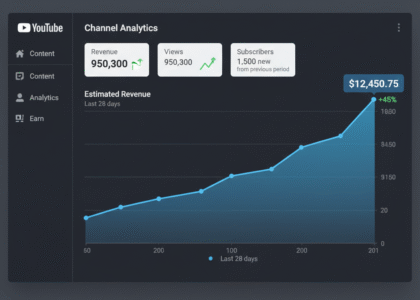Investing is one of the most powerful ways to grow your wealth over time. But if you’re new to it, the process can seem daunting. Where do you start? How do you make smart decisions? Don’t worry—we’ve got you covered. This guide to investing for beginners will break everything down step by step so you can take charge of your financial future.
What Is Investing and Why Is It Important?
Investing is the act of putting your money to work to earn returns over time. Unlike saving, which keeps your money in a low-risk, low-return account, investing helps you grow your wealth by harnessing the power of compounding and market growth.
Why Should Investing for beginners Early?

- Time is your greatest ally: The earlier you invest, the more time your money has to grow.
- Compounding power: Earnings from your investments can generate their own earnings, creating exponential growth.
- Beating inflation: Investing helps your money keep pace with or beat inflation, protecting your purchasing power.
Step 1: Define Your Financial Goals Investing for beginners
Start by asking yourself: What do I want to achieve with investing?
- Short-term goals: Saving for a vacation or a wedding.
- Medium-term goals: Buying a house or starting a business.
- Long-term goals: Retirement or creating generational wealth.
Knowing your goals will help you choose the right investment strategies.
Step 2: Understand the Basics of Investing for beginners

Before diving in, familiarize yourself with key investment concepts:
- Stocks: Shares in a company that give you partial ownership.
- Bonds: Loans to companies or governments in exchange for interest payments.
- Mutual Funds and ETFs: Pooled investments that spread risk across many assets.
- Risk and Return: Higher potential returns often come with higher risks.
Pro Tip: Learn more about investment types on GetCashVibe.
Step 3: Set a Budget for Investing for beginners
How much can you afford to invest?
- Follow the 50/30/20 rule: Allocate 50% of your income to needs, 30% to wants, and 20% to savings and investments.
- Start small: Even $50 a month can add up over time.
Step 4: Choose an Investment Platform
There are many online platforms where beginners can start investing.
- Robo-Advisors: Automated platforms like Betterment or Wealthfront for hands-off investing.
- Brokerage Accounts: Platforms like Vanguard, Fidelity, or Robinhood for DIY investors.
- Micro-Investing Apps: Apps like Acorns or Stash for investing spare change.
Step 5: Build a Diversified Portfolio

Don’t put all your eggs in one basket.
- Spread your investments across asset classes like stocks, bonds, and real estate.
- Consider index funds or ETFs for instant diversification.
Why Diversification Matters
It reduces risk by ensuring that a loss in one investment doesn’t wipe out your entire portfolio.
Step 6: Keep Learning and Stay Informed
Markets fluctuate, and staying informed is key
- Follow trusted sources like Investopedia and financial news outlets.
- Explore in-depth guides on GetCashVibe to expand your knowledge.
Step 7: Stay Patient and Avoid Emotional Decisions
Investing is a marathon, not a sprint.
- Stick to your plan: Avoid panic selling during market dips.
- Think long-term: Remember, short-term volatility is normal.
Common Mistakes Beginners Should Avoid

- Trying to time the market: It’s nearly impossible to predict short-term market movements.
- Investing without a plan: Have clear goals and strategies.
- Ignoring fees: Over time, high fees can eat into your returns.
The Power of Starting Today Investing for beginners
There’s no better time than now to start investing. Whether you’re saving for a dream vacation, a new home, or your retirement, taking the first step is what matters most.
FAQs
1. How much money do I need to start investing?
You can start with as little as $5 using micro-investing apps.
2. Is investing risky?
All investments come with some risk, but diversification and research can help minimize it.
3. What’s the best investment for beginners?
Index funds and ETFs are great options due to their low costs and diversification.
4. How often should I check my investments?
Review your portfolio quarterly to ensure it aligns with your goals.
5. Where can I learn more about investing?
Explore beginner-friendly resources on GetCashVibe and other reputable financial websites.
Discover More on GetCashVibe!
Ready to learn more about financial freedom? Explore GetCashVibe today for tips, tools, and insights to take control of your finances!






